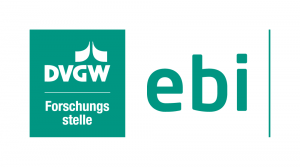
Partner Organizations
Technical University of Denmark
Denmark
For almost two centuries DTU, Technical University of Denmark, has been dedicated to fulfilling the vision of H.C. Ørsted—the father of electromagnetism—who founded the university in 1829 to develop and create value using the natural sciences and the technical sciences to benefit society.
DTU is a vibrant elite technical university, recognized for its high level of international research and its sought-after graduates. Through collaboration, our staff and students reach out to the world and work across disciplines to create value, welfare, and growth by developing technologies that work in a globalized world, transcending social and cultural differences.
DTU’s research centres on the natural and the technical sciences, and is driven by the needs of society – pushing the boundaries of the possible, discovering and driving change. Focus areas include several societally relevant engineering disciplines, including digitalization, sustainable energy technologies, and life science.
Greenlab Skive
Denmark
A truly green industrial business park with the unique SymbiosisNet®
GreenLab hosts the world’s first green industrial space. The businesses located in our business park are supplied with sustainable energy from multiple energy sources in the form that suits their production best.
Moreover, they are all connected to the SymbiosisNet™ – a unique smart grid solution that lets them share their surplus
energy resources with each other, thereby providing a cost-effective set-up that results in maximally green end products
or consumers.
Finally, GreenLab provides a plug-and-play cloud solution that enables businesses to optimize their production via a plat-
form that integrates multiple data streams.
Energie Institut
Austria
The Energy Institute at the Johannes Kepler University Linz is a not for profit research organisation, whose multidisciplinary knowledge of more than one scientific field is essential for energy-related research topics. Our institute’s three departments cover Energy Economics, Energy Law and Energy Technologies. Only the combination of these core disciplines allows comprehensive analyses and accounts for all aspects of future-oriented energy topics. We analyse the economic effects of questions regarding energy-related policy, discuss the most recent developments in the European energy legislation and evaluate strategies for CO2 abatement schemes as well as measures aimed at promoting energy efficiency goals. EI-JKU is deeply rooted in the Austrian research community, publishes in high level journals and possesses experience of four European research projects in the 7th framework programme
DGI Gastechnologisches Institut gGmbH
Germany
DBI-GTI is an engineering and research company combining the development of new renewable gaseous fuel technologies and their practical implementation along the gas supply chain in Europe. Project leader Gert Müller-Syring was involved in several European and national research and demonstration projects especially for power-to-gas technologies and hydrogen injection into natural gas grids. (e.g. WP coordinator in FP 6 project NATURALHY). He is coordinator of HIPS-NET, an association of 36 companies for pan-European exchange for standardisation and implementation of hydrogen in natural gas grids. The research DVGW-EBI of includes experimental and theoretical investigations, energy systems analysis, economic aspects and especially the evaluation of energetic optimization of P2G-concepts (e.g. in EU project Store&GO, which is coordinated by DVGW-EBI). Felix Ortloff is experienced in the fields methanisation and CO2 sequestration.
DVGW-Forschungsstelle am Engler-Bunte-Institut des Karlsruher Instituts für Technologie (KIT)
Germany
The DVGW has been working for the gas and water industry as an independent and unbiased technical scientific association since 1859, the objective being to create a basis for the safe and technologically flawless supply of gas and water. It is the reference German institution for the development of technical rules, the associated pre-normative research and certification of gas and water related appliances. Regulations merely constitute the basis of the services the DVGW has to offer its members. The practical work in the gas and water sector is based on the technical rules of DVGW. The association has excellent laboratories for the testing of gas related processes, an unbiased view on renewable gases, Power to gas and related technologies.
National Research Council of Italy
Italy
The National Research Council (CNR) is the largest public research institution in Italy, the only one under the Research Ministry performing multidisciplinary activities.
In the CNR’s research world, the main resource is the available knowledge which means people, with their skills, commitment and ideas. This capital comprises more than 8.000 employees, of whom more than half are researchers and technologists. Some 4.000 young researchers are engaged in postgraduate studies and research training at CNR within the organization’s top-priority areas of interest. A significant contribution also comes from research associates: researchers, from Universities or private firms, who take part in CNR’s research activities.
CNR canshow off expertise in the development and testing of power generation and storage devices and in the modeling of systems with simulation environments such as Matlab, Labview, COMSOL Multiphisics, Trnsys, Dymola, in numerous research projects and in various international publications.
CNR ITAE
Italy
CNR ITAE Institute, located in Messina (IT) is part of the National Council of Research.
Since its foundation in 1983, its mission is the development of environmentally-friendly innovative technologies
and energy processes, through the use of fossil and renewable energy sources.
The staff of the institute currently includes 85 people among researchers, PhD students and technicians.
The core research fields include thermal storage, electric storage, renewable energy conversion and integration, hydrogen production and storage, biofuels and high efficiency energy buildings.
The institute carries out research and development activities, with special focus on applied research and technology transfer to promote market introduction of the developed technologies.
University of Bologna Department of Industrial Engineering

Italy
The University of Bologna has acquired long experience
in the plant engineering, in the design, construction and operation of plants for the production and use of
energy from renewable sources.
Research activity aims also at plant engineering of multi-phase flows, maintenance in industrial plants and Industry 4.0.
University of Groningen, Faculty of Economics and Business
The Netherlands
 The Centre for Energy Economics Research fosters energy-related research within the FEB-faculty of University of Groningen.
The Centre for Energy Economics Research fosters energy-related research within the FEB-faculty of University of Groningen.
Greening the energy system is at key stake and various academic publication are already made w.r.t.
power-to-gas.
Machiel Mulder, the director of CEER, is very experienced in the functioning and regulation of energy
markets (wholesale markets, transmission and distribution networks, and retail markets).
European Research Institut for Gas and Energy Innovation
Belgium
In 2015 seven leading European technical and scientific organizations established a network to foster the role of gas and innovative gas technologies in the future energy system: ERIG – European Research Institute for Gas and Energy Innovation.
ERIG is a new European research and development network that will guide gas in the transition process towards a future renewable based energy system. It is a non-profit network for European cooperation in research and innovation in the field of sustainable and innovative gas technologies and the use of natural gas with renewable energies. ERIG members represent national technical and scientific gas organizations and associations that represent in particular the new requirements of energy and gas in Northern/Western Europe.
The research portfolio of ERIG members covers all aspects from the production of gas through to gas utilization
in different markets.








